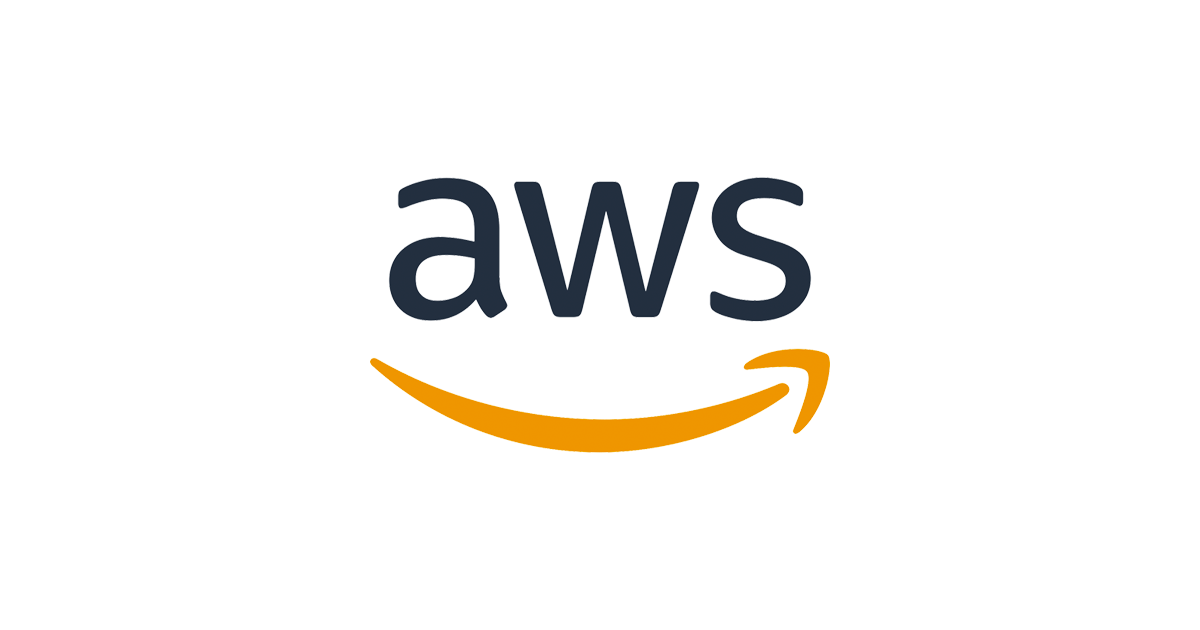
TrivyでAWSアカウントのセキュリティスキャンができるようになりました
この記事は公開されてから1年以上経過しています。情報が古い可能性がありますので、ご注意ください。
中山です
trivyのv0.31.0でAWSアカウントのセキュリティスキャンができるようになりました。
feat: Add AWS Cloud scanning (#2493)
なお、v0.31.0でスキャンを実行するとクラッシュするバグがあり、すぐにv0.31.2がリリースされました。
どんな感じか気になったので、軽く触っておこうと思います。
ドキュメントを確認
まずはドキュメントを確認します。
ポイントになると思った点をまとめます。
- CIS AWS Foundations Benchmark standardに準拠したチェックが可能
- 認証方法はAWS CLIと同じ
- すべてのAWSリソースに対する参照権限が必要 (ReadOnlyAccess)
- サービス・リージョン・リソース(ARN)でのフィルタリングが可能
- デフォルトで24時間スキャン結果がキャッシュされる(コマンド実行時のオプションでキャッシュを強制的に更新することも可能)
- 現時点では実験的な機能という位置づけのため、破壊的な変更があり得る
ヘルプを確認
ヘルプも見ておきましょう。
trivy aws --help
$ trivy aws --help
Scan an AWS account for misconfigurations. Trivy uses the same authentication methods as the AWS CLI. See https://docs.aws.amazon.com/cli/latest/userguide/cli-chap-configure.html
The following services are supported:
- api-gateway
- athena
- cloudfront
- cloudtrail
- cloudwatch
- codebuild
- documentdb
- dynamodb
- ec2
- ecr
- ecs
- efs
- eks
- elasticache
- elasticsearch
- elb
- emr
- iam
- kinesis
- kms
- lambda
- mq
- msk
- neptune
- rds
- redshift
- s3
- sns
- sqs
- ssm
- workspaces
Usage:
trivy aws [flags]
Examples:
# basic scanning
$ trivy aws --region us-east-1
# limit scan to a single service:
$ trivy aws --region us-east-1 --service s3
# limit scan to multiple services:
$ trivy aws --region us-east-1 --service s3 --service ec2
# force refresh of cache for fresh results
$ trivy aws --region us-east-1 --update-cache
Report Flags
--dependency-tree show dependency origin tree (EXPERIMENTAL)
--exit-code int specify exit code when any security issues are found
-f, --format string format (table, json, sarif, template, cyclonedx, spdx, spdx-json, github, cosign-vuln) (default "table")
--ignore-policy string specify the Rego file path to evaluate each vulnerability
--ignorefile string specify .trivyignore file (default ".trivyignore")
--list-all-pkgs enabling the option will output all packages regardless of vulnerability
-o, --output string output file name
--report string specify a report format for the output. (all,summary) (default "all")
-s, --severity string severities of security issues to be displayed (comma separated) (default "UNKNOWN,LOW,MEDIUM,HIGH,CRITICAL")
-t, --template string output template
Misconfiguration Flags
--config-data strings specify paths from which data for the Rego policies will be recursively loaded
--config-policy strings specify paths to the Rego policy files directory, applying config files
--file-patterns strings specify config file patterns, available with '--security-checks config'
--helm-set strings specify Helm values on the command line (can specify multiple or separate values with commas: key1=val1,key2=val2)
--helm-set-file strings specify Helm values from respective files specified via the command line (can specify multiple or separate values with commas: key1=path1,key2=path2)
--helm-set-string strings specify Helm string values on the command line (can specify multiple or separate values with commas: key1=val1,key2=val2)
--helm-values strings specify paths to override the Helm values.yaml files
--include-non-failures include successes and exceptions, available with '--security-checks config'
--policy-namespaces strings Rego namespaces
--tf-vars strings specify paths to override the Terraform tfvars files
--trace enable more verbose trace output for custom queries
Cloud Flags
--max-cache-age duration The maximum age of the cloud cache. Cached data will be requeried from the cloud provider if it is older than this. (default 24h0m0s)
--update-cache Update the cache for the applicable cloud provider instead of using cached results.
AWS Flags
--account string The AWS account to scan. It's useful to specify this when reviewing cached results for multipel accounts.
--arn string The AWS ARN to show results for. Useful to filter results once a scan is cached.
--endpoint string AWS Endpoint override
--region string AWS Region to scan
--service strings Only scan AWS Service(s) specified with this flag. Can specify multiple services using --service A --service B etc.
Global Flags:
--cache-dir string cache directory (default "/home/ec2-user/.cache/trivy")
-c, --config string config path (default "trivy.yaml")
-d, --debug debug mode
--generate-default-config write the default config to trivy-default.yaml
--insecure allow insecure server connections when using TLS
-q, --quiet suppress progress bar and log output
--timeout duration timeout (default 5m0s)
-v, --version show version
コマンドの実行例もあり、非常に親切ですね。(たすかる)
スキャン対象を絞る方法や出力結果のフォーマットの指定方法なども確認できます。
やってみた
以下の流れで試してみます。
- 実行環境の作成
- 今回はCloud9を利用
- 認証情報の設定
- Trivyのインストール
- スキャンの実行
Cloud9環境の作成手順は割愛します。今回はAmazon Linux2+EC2で環境を作成しました。必要に応じて公式のドキュメント等を確認してください。
また、Cloud9を利用する場合にはマネージメントコンソールにログインする際に利用したユーザー・ロールの権限をシームレスに利用できるため、追加の設定は不要です。 この仕様に関する詳細も必要に応じて公式ドキュメントを確認してください。
AWS managed temporary credentials
AWS managed temporary credentialsを利用する際に認証に関する問題が発生した場合、Cloud9が作成したEC2インスタンスにInstance Profileを設定してAWS managed temporary credentialsを無効化することで問題を回避できる場合があります。必要に応じてご対応ください。
Create and use an instance profile to manage temporary credentials
Trivyのインストール
インストールはこちらのドキュメントを参照してください。
今回はRPMを利用してインストールします。
rpm -ivh https://github.com/aquasecurity/trivy/releases/download/v0.31.2/trivy_0.31.2_Linux-64bit.rpm
スキャンの実行
コマンドを実行してみます。
trivy aws
[1/31] Scanning api-gateway... [2/31] Scanning athena... [3/31] Scanning cloudfront... [4/31] Scanning cloudtrail... [5/31] Scanning cloudwatch... [6/31] Scanning codebuild... [7/31] Scanning documentdb... [8/31] Scanning dynamodb... [9/31] Scanning ec2... [10/31] Scanning ecr... [11/31] Scanning ecs... [12/31] Scanning efs... [13/31] Scanning eks... [14/31] Scanning elasticache... [15/31] Scanning elasticsearch... [16/31] Scanning elb... [17/31] Scanning emr... [18/31] Scanning iam... [19/31] Scanning kinesis... [20/31] Scanning kms... [21/31] Scanning lambda... [22/31] Scanning mq... [23/31] Scanning msk... [24/31] Scanning neptune... [25/31] Scanning rds... [26/31] Scanning redshift... [27/31] Scanning s3... [28/31] Scanning sns... [29/31] Scanning sqs... [30/31] Scanning ssm... [31/31] Scanning workspaces... Scan Overview for AWS Account xxxxxxxxxxxx ┌───────────────┬──────────────────────────────────────────────────┬──────────────┐ │ │ Misconfigurations │ │ │ ├──────────┬──────────────┬────────┬─────┬─────────┤ │ │ Service │ Critical │ High │ Medium │ Low │ Unknown │ Last Scanned │ ├───────────────┼──────────┼──────────────┼────────┼─────┼─────────┼──────────────┤ │ api-gateway │ 0 │ 0 │ 0 │ 0 │ 0 │ just now │ │ athena │ 0 │ 3 │ 0 │ 0 │ 0 │ just now │ │ cloudfront │ 1 │ 2 │ 1 │ 0 │ 0 │ just now │ │ cloudtrail │ 0 │ 1 │ 0 │ 1 │ 0 │ just now │ │ cloudwatch │ 0 │ 0 │ 0 │ 16 │ 0 │ just now │ │ codebuild │ 0 │ 0 │ 0 │ 0 │ 0 │ just now │ │ documentdb │ 0 │ 0 │ 0 │ 0 │ 0 │ just now │ │ dynamodb │ 0 │ 0 │ 0 │ 0 │ 0 │ just now │ │ ec2 │ 48 │ 2 │ 0 │ 38 │ 0 │ just now │ │ ecr │ 0 │ 0 │ 0 │ 0 │ 0 │ just now │ │ ecs │ 0 │ 0 │ 0 │ 1 │ 0 │ just now │ │ efs │ 0 │ 0 │ 0 │ 0 │ 0 │ just now │ │ eks │ 0 │ 0 │ 0 │ 0 │ 0 │ just now │ │ elasticache │ 0 │ 0 │ 0 │ 0 │ 0 │ just now │ │ elasticsearch │ 0 │ 0 │ 0 │ 0 │ 0 │ just now │ │ elb │ 0 │ 0 │ 0 │ 0 │ 0 │ just now │ │ emr │ 0 │ 0 │ 0 │ 0 │ 0 │ just now │ │ iam │ 0 │ 191 │ 4 │ 1 │ 0 │ just now │ │ kinesis │ 0 │ 0 │ 0 │ 0 │ 0 │ just now │ │ kms │ 0 │ 0 │ 21 │ 0 │ 0 │ just now │ │ lambda │ 0 │ 0 │ 0 │ 0 │ 0 │ just now │ │ mq │ 0 │ 0 │ 0 │ 0 │ 0 │ just now │ │ msk │ 0 │ 0 │ 0 │ 0 │ 0 │ just now │ │ neptune │ 0 │ 0 │ 0 │ 0 │ 0 │ just now │ │ rds │ 1 │ 0 │ 0 │ 0 │ 0 │ just now │ │ redshift │ 0 │ 0 │ 0 │ 0 │ 0 │ just now │ │ s3 │ 0 │ 28 │ 10 │ 2 │ 0 │ just now │ │ sns │ 0 │ 0 │ 0 │ 0 │ 0 │ just now │ │ sqs │ 0 │ 0 │ 0 │ 0 │ 0 │ just now │ │ ssm │ 0 │ 0 │ 0 │ 0 │ 0 │ just now │ │ workspaces │ 0 │ 0 │ 0 │ 0 │ 0 │ just now │ └───────────────┴──────────┴──────────────┴────────┴─────┴─────────┴──────────────┘
特定のサービスのみのスキャンを実行する事もできます。
trivy aws --service s3
Resource Summary for Service 's3' (AWS Account xxxxxxxxxxxx) ┌─────────────────────────────────────────────────────────────────────────────┬──────────────────────────────────────────┐ │ │ Misconfigurations │ │ ├──────────┬──────┬────────┬─────┬─────────┤ │ Resource │ Critical │ High │ Medium │ Low │ Unknown │ ├─────────────────────────────────────────────────────────────────────────────┼──────────┼──────┼────────┼─────┼─────────┤ │ arn:aws:s3:::aws-athena-query-results-xxxxxxxxxxxx-ap-northeast-1 │ 0 │ 6 │ 2 │ 1 │ 0 │ │ arn:aws:s3:::cf-templates-yyyyyyyyyy-ap-northeast-1 │ 0 │ 2 │ 2 │ 0 │ 0 │ │ arn:aws:s3:::dummy-000 │ 0 │ 2 │ 2 │ 0 │ 0 │ │ arn:aws:s3:::dummy-001 │ 0 │ 6 │ 2 │ 0 │ 0 │ │ arn:aws:s3:::dummy-002 │ 0 │ 6 │ 1 │ 0 │ 0 │ │ arn:aws:s3:::dummy-003 │ 0 │ 6 │ 1 │ 1 │ 0 │ └─────────────────────────────────────────────────────────────────────────────┴──────────┴──────┴────────┴─────┴─────────┘ This scan report was loaded from cached results. If you'd like to run a fresh scan, use --update-cache.
リソース単位で詳細な結果を確認することも可能です。
各是正項目に記載のあるリンク先には、問題の詳細や是正方法に関する記載があります。
trivy aws --arn arn:aws:s3:::aws-athena-query-results-xxxxxxxxxxxx-ap-northeast-1
Results for 'arn:aws:s3:::aws-athena-query-results-xxxxxxxxxxxx-ap-northeast-1' (AWS Account xxxxxxxxxxxx) arn:aws:s3:::aws-athena-query-results-xxxxxxxxxxxx-ap-northeast-1 (cloud) Tests: 9 (SUCCESSES: 0, FAILURES: 9, EXCEPTIONS: 0) Failures: 9 (UNKNOWN: 0, LOW: 1, MEDIUM: 2, HIGH: 6, CRITICAL: 0) HIGH: No public access block so not blocking public acls ════════════════════════════════════════════════════════════════════════════════════════════════════════════════════════════════════════════════════════════════════════════════════════════════════════════════════════════════════════════════════════════════ S3 buckets should block public ACLs on buckets and any objects they contain. By blocking, PUTs with fail if the object has any public ACL a. See https://avd.aquasec.com/misconfig/avd-aws-0086 HIGH: No public access block so not blocking public policies ════════════════════════════════════════════════════════════════════════════════════════════════════════════════════════════════════════════════════════════════════════════════════════════════════════════════════════════════════════════════════════════════ S3 bucket policy should have block public policy to prevent users from putting a policy that enable public access. See https://avd.aquasec.com/misconfig/avd-aws-0087 HIGH: Bucket does not have encryption enabled ════════════════════════════════════════════════════════════════════════════════════════════════════════════════════════════════════════════════════════════════════════════════════════════════════════════════════════════════════════════════════════════════ S3 Buckets should be encrypted to protect the data that is stored within them if access is compromised. See https://avd.aquasec.com/misconfig/avd-aws-0088 MEDIUM: Bucket does not have logging enabled ════════════════════════════════════════════════════════════════════════════════════════════════════════════════════════════════════════════════════════════════════════════════════════════════════════════════════════════════════════════════════════════════ Buckets should have logging enabled so that access can be audited. See https://avd.aquasec.com/misconfig/avd-aws-0089 MEDIUM: Bucket does not have versioning enabled ════════════════════════════════════════════════════════════════════════════════════════════════════════════════════════════════════════════════════════════════════════════════════════════════════════════════════════════════════════════════════════════════ Versioning in Amazon S3 is a means of keeping multiple variants of an object in the same bucket. You can use the S3 Versioning feature to preserve, retrieve, and restore every version of every object stored in your buckets. With versioning you can recover more easily from both unintended user actions and application failures. See https://avd.aquasec.com/misconfig/avd-aws-0090 HIGH: Bucket does not encrypt data with a customer managed key. ════════════════════════════════════════════════════════════════════════════════════════════════════════════════════════════════════════════════════════════════════════════════════════════════════════════════════════════════════════════════════════════════ Encryption using AWS keys provides protection for your S3 buckets. To increase control of the encryption and manage factors like rotation use customer managed keys. See https://avd.aquasec.com/misconfig/avd-aws-0132 HIGH: No public access block so not ignoring public acls ════════════════════════════════════════════════════════════════════════════════════════════════════════════════════════════════════════════════════════════════════════════════════════════════════════════════════════════════════════════════════════════════ S3 buckets should ignore public ACLs on buckets and any objects they contain. By ignoring rather than blocking, PUT calls with public ACLs will still be applied but the ACL will be ignored. See https://avd.aquasec.com/misconfig/avd-aws-0091 HIGH: No public access block so not restricting public buckets ════════════════════════════════════════════════════════════════════════════════════════════════════════════════════════════════════════════════════════════════════════════════════════════════════════════════════════════════════════════════════════════════ S3 buckets should restrict public policies for the bucket. By enabling, the restrict_public_buckets, only the bucket owner and AWS Services can access if it has a public policy. See https://avd.aquasec.com/misconfig/avd-aws-0093 LOW: Bucket does not have a corresponding public access block. ════════════════════════════════════════════════════════════════════════════════════════════════════════════════════════════════════════════════════════════════════════════════════════════════════════════════════════════════════════════════════════════════ The "block public access" settings in S3 override individual policies that apply to a given bucket, meaning that all public access can be controlled in one central types for that bucket. It is therefore good practice to define these settings for each bucket in order to clearly define the public access that can be allowed for it. See https://avd.aquasec.com/misconfig/avd-aws-0094 This scan report was loaded from cached results. If you'd like to run a fresh scan, use --update-cache.
まとめ
以上のように、trivyでAWSアカウントのスキャンを行えるようになりました。
ローカル環境で手軽にスキャンを実行できて非常に良いですね。個人的にはARN指定でスキャンできるのがありがたいです。 CI/CD環境への組み込みも簡単にできそうです。
現時点では実験的な機能という位置づけですが、そのうちサポート対象のサービス拡大や安定性の向上も図られると思いますので注目しておきたいと思います。
追記
YouTubeに解説動画もアップロードされていました。










